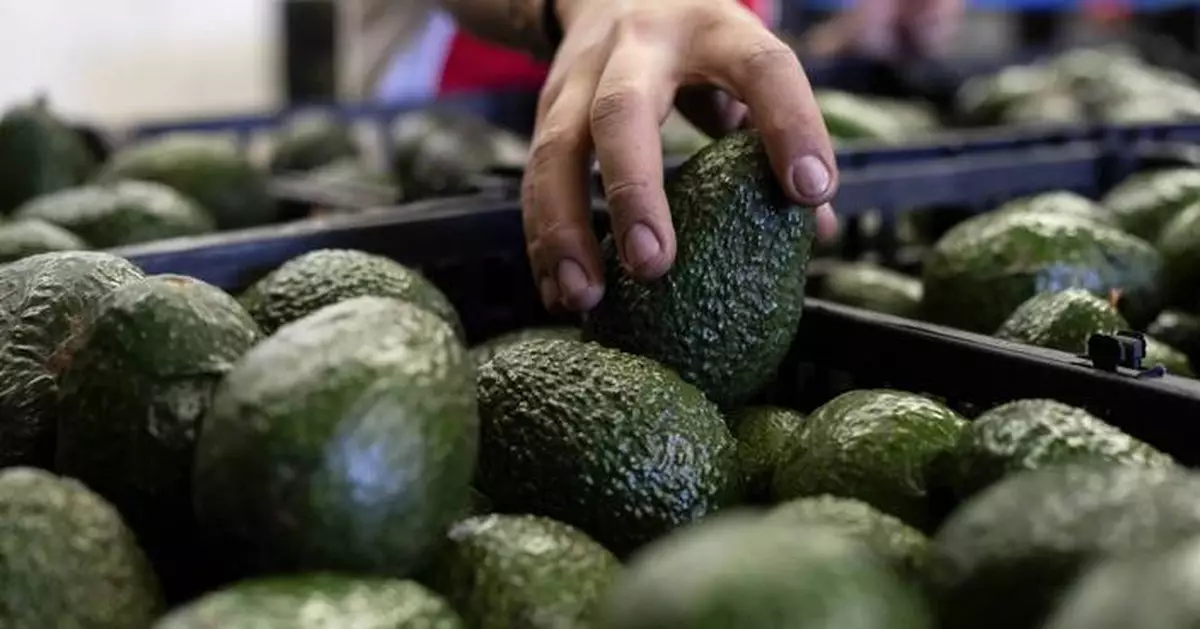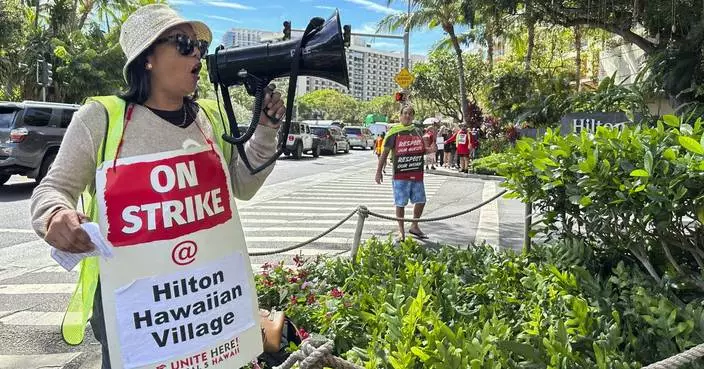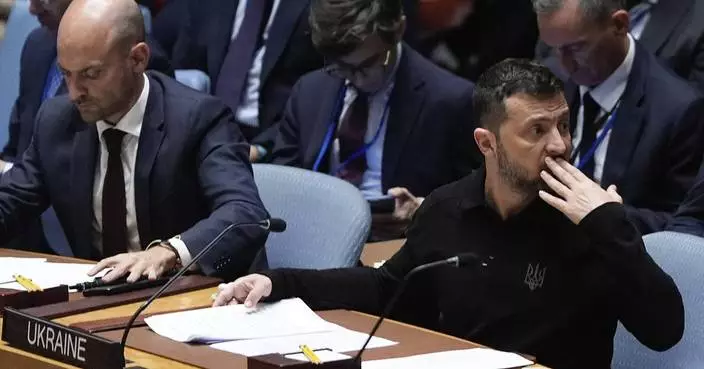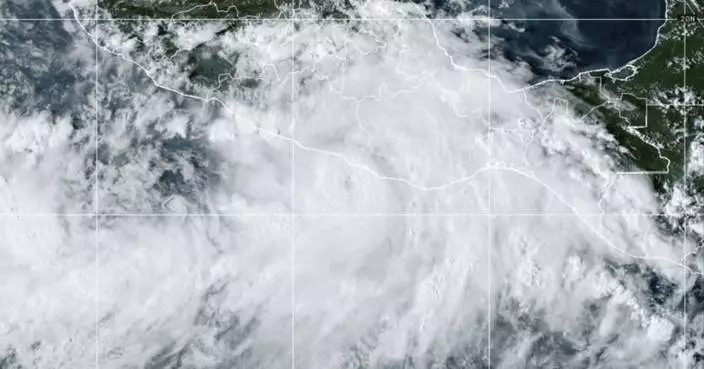MEXICO CITY (AP) — California avocado growers are fuming this week about a U.S. decision to hand over pest inspections of Mexican orchards to the Mexican government.
Inspectors hired by the U.S. Department of Agriculture have been guarding against imports of avocados infected with insects and diseases since 1997, but they have also been threatened in Mexico for refusing to certify deceptive shipments in recent years.
Threats and violence against inspectors have caused the U.S. to suspend inspections in the past, and California growers question whether Mexico’s own inspectors would be better equipped to withstand such pressure.
"This action reverses the long-established inspection process designed to prevent invasions of known pests in Mexico that would devastate our industry," the California Avocado Commission wrote in an open letter to U.S. Secretary of Agriculture Tom Vilsack on Monday.
At present, inspectors work for the U.S. Department of Agriculture’s Animal and Plant Health Inspection Service, known as APHIS. Because the United States also grows avocados, U.S. inspectors observe orchards and packing houses in Mexico to ensure exported avocados don’t carry pests that could hurt U.S. crops.
“It is well known that their physical presence greatly reduces the opportunity of others to game the system,” the avocado commission wrote. ”What assurances can APHIS provide us that its unilateral reversal of the process will be equal to or better than what has protected us?"
The letter added, "We are looking for specifics as to why you have concluded that substituting APHIS inspectors with Mexican government inspectors is in our best interest."
The decision was announced last week in a short statement by Mexico's Agriculture Department, which claimed that “with this agreement, the U.S. health safety agency is recognizing the commitment of Mexican growers, who in more than 27 years have not had any sanitary problems in exports.”
The idea that there have been no problems is far from the truth.
In 2022, inspections were halted after one of the U.S. inspectors was threatened in the western state of Michoacan, where growers are routinely subject to extortion by drug cartels. Only the states of Michoacan and Jalisco are certified to export avocados to the United States.
The U.S. Department of Agriculture said at the time that the inspector had received a threat “against him and his family.”
The inspector had “questioned the integrity of a certain shipment, and refused to certify it based on concrete issues,” according to the USDA statement. Some packers in Mexico buy avocados from other, non-certified states, and try to pass them off as being from Michoacan.
Sources at the time said the 2022 threat involved a grower demanding the inspector certify more avocados than his orchard was physically capable of producing, suggesting that at least some had been smuggled in from elsewhere.
And in June, two USDA employees were assaulted and temporarily held by assailants in Michoacan. That led the U.S. to suspend inspections in Mexico’s biggest avocado-producing state.
The U.S. Department of Agriculture did not immediately respond to questions about why the decision was made, or whether it was related to the threats.
Mexico currently supplies about 80% of U.S. imports of the fruit. Growers in the U.S. can't supply the country's whole demand, nor provide fruit year-round.
Follow AP’s coverage of Latin America and the Caribbean at https://apnews.com/hub/latin-america
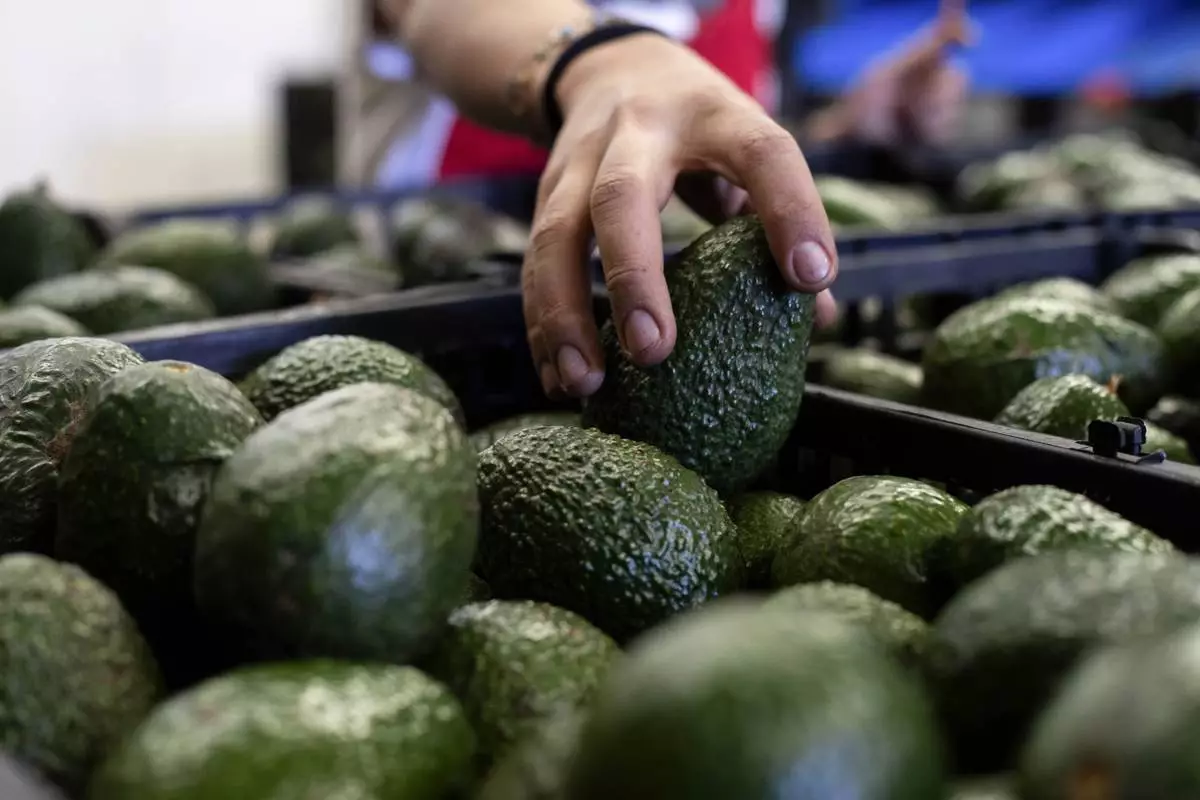
FILE - A worker packs avocados at a plant in Uruapan, Michoacan state, Mexico, Feb. 9, 2024. (AP Photo/Armando Solis, File)
MEXICO CITY (AP) — An American quarry company said Tuesday the Mexican government carried out a de facto expropriation of its properties on Mexico’s Caribbean coast.
Mexico's Interior Department issued a decree late Monday declaring the firm’s seaport and quarries to be a natural protected area, in effect prohibiting the company’s activities on its own land.
President Andrés Manuel López Obrador had previously threatened to expropriate the property and later offered to buy it for about $385 million, saying at the time he wanted to turn it into a tourist attraction.
Alabama-based Vulcan Materials said in a statement Tuesday that the move violates the U.S.-Mexico-Canada free trade agreement. It said the measure formed part of “a series of threats and actions by the current administration against our operations.
“The expropriation of land and the seaport belonging to our company is another escalation and another violation of Mexico's obligations under trade agreements,” the statement said. “This illegal measure will have a long-term paralyzing effect on trade and investment relations between Mexico and the United States."
The decree published in the official gazette shows a strangely patterned nature reserve that follows exactly some of the company's property lines.
While the decree states the purpose of the park is to protect local animal and plant species, in fact the seaport and stone quarries are very disturbed areas, do not much resemble a nature reserve and would add little to that effort.
Moreover, the decree comes after López Obrador's administration cut down tens of thousands of trees in a broad swath through native jungle to build a tourist train line not far from the stone quarries.
The company, which was already involved in a dispute resolution panel complaint against the Mexican government, said Tuesday it would use “all available legal channels” to fight the new decree.
In June the American company rejected the Mexican president’s buy-out offer, saying it “substantially undervalues our assets.”
In papers filed on the case in an international arbitration panel, Vulcan Materials valued the almost 6,000-acre (2,400-hectare) property, located just south of the resort town of Playa del Carmen, at $1.9 billion.
The Mexican president has in the past threatened to expropriate the extensive property, claiming the pits the company has dug to extract crushed limestone have damaged the fragile system of underground rivers and caves in the area.
But Vulcan Materials rejected the charge at that time. “Our operations have not adversely affected underground caves, cenotes or archaeological sites. In fact, we have mapped, protected and preserved these valuable resources,” the company said in a statement.
Instead, the company alleged that some other quarries in the area have been operating unlawfully. “Unlike other quarrying sites that have been operating unlawfully to supply the Mayan Train, our operations were duly permitted,” the company said.
The Mayan Train is a pet project of López Obrador to build a tourist train around the Yucatan peninsula. Activists, cave divers and archeologist say the project has damaged the caves, which hold some of the oldest human remains in North America.
López Obrador has said in the past that the most attractive part of the property was the company’s freight shipping dock — the only deep port on the coast’s mainland — which he previously said he wanted to turn into a dock for cruise ships.
López Obrador has also said he wants to use the flooded pits that the company dug out of hundreds of acres of the limestone soil as “swimming pools” or an “ecotourism” area that would be operated as a concession by a private operator.
However, the huge quarry pits are inhabited by crocodiles, which are a protected species in Mexico.
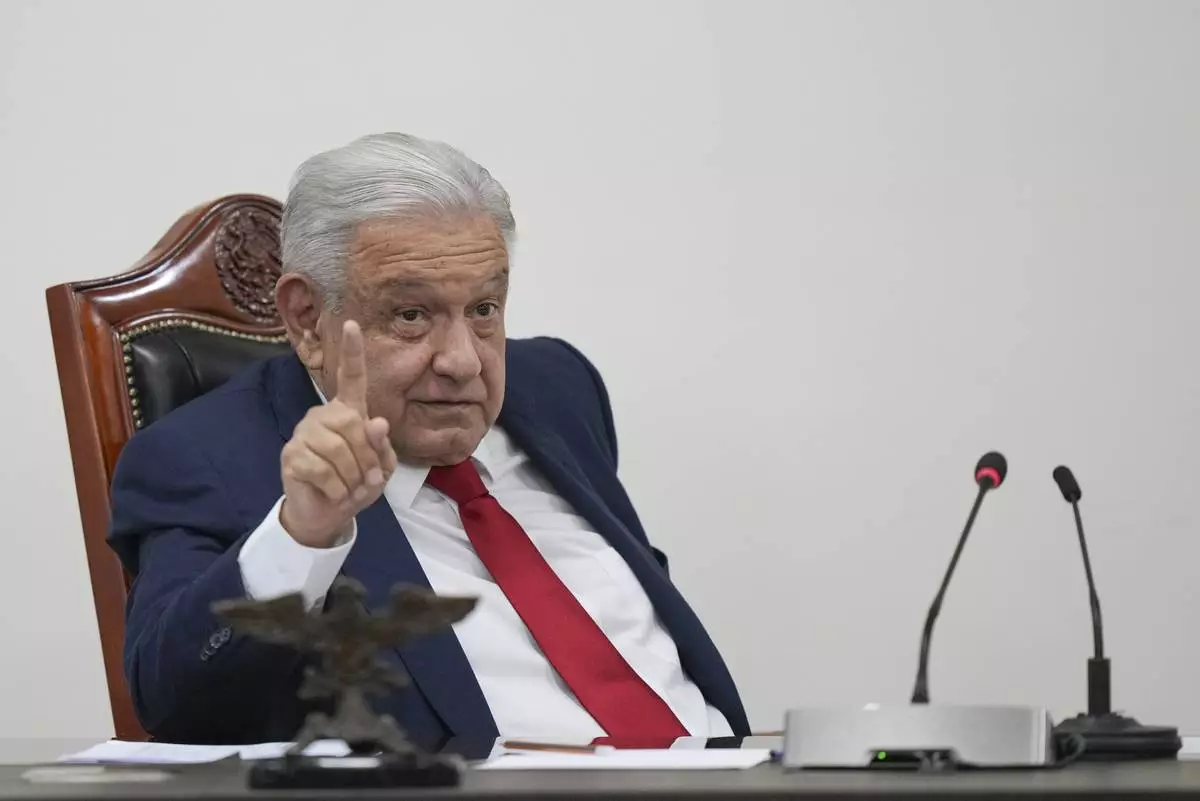
FILE - Mexican President Andres Manuel Lopez Obrador meets with his security cabinet at the National Place in Mexico City, Aug. 2, 2024. (AP Photo/Fernando Llano, File)



